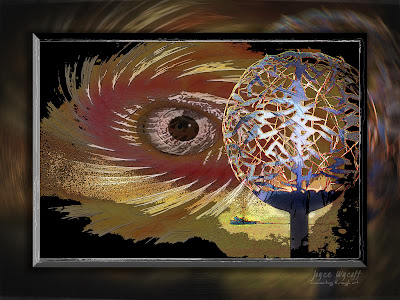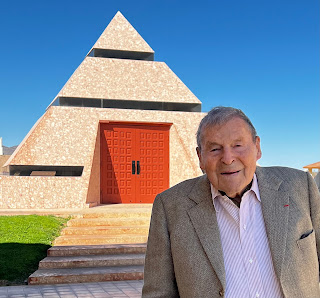 |
| Turn My Ship Around |
Yesterday, in a conversation with a dear friend, she noticed that we pronounced BMW differently. Hers ended with a “you” sound and mind ended with an “uh” sound. She is a California girl; I’m from the Midwest. We’re both language oriented, careful about words and grammar; she perhaps more of a stickler than I am. She’s the only person I know who can say, “It is I.” Both of us were raised in poor, under-schooled families and being “educated” was important to us.The point of all of this is that when she noted my “accent,” a minor flood of emotion swept through me. I was offended and instantly defensive. My immediate efforts to “be right” surprised me. Fortunately, our relationship is such that we unpacked it and wound up laughing about backgrounds and how we got here. (And, by the way, there is actually a 24-second YouTube video on the proper pronunciation … and, as is usually the case, my friend was right.)
The surprising reaction, however, stayed with me. Where did that feeling come from? What triggered that flash of not being perfect, of being attacked? In general, where do emotions come from?
Recently, I’ve been on an intriguing journey into the chemistry of bodymind, assisted by the amazing podcasts from the Huberman Lab and LifeSpan with David Sinclair. While they both do an amazing job of simplifying the complex world of biochemistry, I’m still just scratching the surface of understanding how all of this works.
However, it’s clear that our emotions create molecules which go racing through our bodies creating all sorts of reactions. After my BMW experience, I started wondering what starts the process, what creates emotion? I found this definition from the Behavioral Research Blog:
Different networks in the brain can create the same emotion. And yes, emotions are created by our brain. It is the way our brain gives meaning to bodily sensations based on past experience. Different core networks all contribute at different levels to feelings such as happiness, surprise, sadness and anger.
So, if I have this right, I heard a comment about the way I pronounced a word and my brain interpreted it as a personal attack and generated a mild form of anger. Remember, I was completely safe, sitting in my own comfy chair talking on the phone to a friend, still my brain was picking up danger signals.
Of course, “the brain” isn’t simply one thing like our tonsils, conveniently located at the back of our throats for easy removal (at least in my day). The brain is more like a city with endless streets and alleyways connecting all the buildings and structures that make up the operation. There are a zillion people running this way and that, cleaning up, rebuilding, carrying messages, many operating on memos sent out a hundred thousand years ago, more or less.
I no longer think I’m running the show. It feels more like I’m a fan sitting in the bleachers watching a basketball game, waving my hand and saying, “May I make a suggestion?” That may be an understatement, maybe I’m more like the coach who can call time, motion the players into a huddle, and offer encouragement and a new play.
And what, pray tell, does any of this have to do with Sweet Peace as we approach the end of the first quarter of this 52-week game? It’s clear that I’m trying to tweak a long established, highly complex, not particularly interested in changing, system. It’s a bit befuddling because “I” am the one trying to change the system and also the one fighting for status quo, i.e. the comfort zone of safety.
These are fresh thoughts and I don’t have answers. However, I do have increased respect for the complexity of my brain systems and why changing them seems to be such a difficult task. My brain has been doing its job pretty darn well for many years. It’s set in its ways and grumbles when I ask it to change.
The question for the next quarter is how to find gentle ways to work with it, make it feel safe. Maybe it’s time to redefine Sweet Peace:
The Sweet Peace I’m looking for is a loving and gentle relationship with my body, respecting its health and strength, willingly nourishing it with health-promoting foods and activities, listening to its needs, and trusting its incredible ability to heal itself, and accepting it unconditionally, grateful for the life it has given me.













